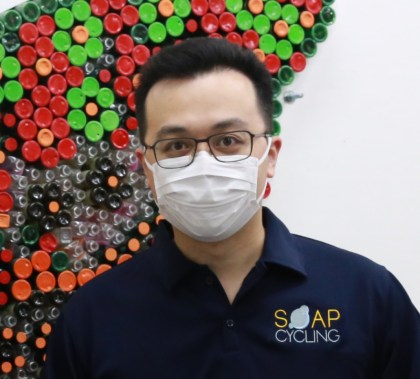Hong Kong’s Pakistani and other ethnic minority groups have faced tough times during the pandemic with many losing their jobs and suffering from rising living costs.
There are approximately 254,700 ethnic minorities in Hong Kong, excluding about 370,000 domestic workers, according to the last population census conducted in 2016. About 30% of them, representing some 80,000 people, were South Asians, including 36,462 Indians, 25,472 Nepalis and 18,094 Pakistanis.
The government in 2018 published a report titled Hong Kong Poverty Situation Report on Ethnic Minorities 2016, which said 20.2% of the 49,400 poor people from ethnic minorities were Pakistanis.
According to the report, lower employment earnings due to lower educational attainment and skill levels of employed persons were the major causes of “working poverty”, which characterized the poverty situation of ethnic minorities in Hong Kong.
Of Hong Kong’s Pakistani workers, 35% were employed in occupations such as security guards, cleaners and logistics workers, while 39% were in service and sales, craft-related and clerical support workers. The remaining 26% were professionals and managers.
For comparison, only 7% of Indians in Hong Kong were workers in basic occupations while 28% were in service and sales, craft-related and clerical support workers. About 65% of Indian people in the city were professionals and managers.
Since an academic research report pointed out in 2003 that Pakistanis enjoyed less job opportunity than others due to language barriers, the Hong Kong government has provided schools with additional funding and resources to help non-Chinese speaking students learn the Chinese language.
Unemployment rate
However, new challenges arose for ethnic minorities when the city was hit by the global pandemic.

Ahmed Muneer, who has lived in Hong Kong for 20 years, said he lost his job as a driver after the Covid-19 epidemic broke out in Hong Kong last year. He said in the past he could make enough money from driving and a clothes-recycling business and afford to rent an apartment for HK$14,000 (US$1,802) a month. He said his family had moved to a smaller home last year while he and his father were running a small grocery shop in Kwai Chung.
“Rising prices for necessities are not a big problem for me…rental expenses have remained the largest part of my living costs,” Muneer said, adding that he hoped the epidemic would end soon so that business activities could revive in Hong Kong.

Hong Kong has experienced four waves of the epidemic since late January 2020. Under the city’s tough quarantine rules, the number of visitors to Hong Kong has dropped by 95% year-on-year since early 2020. Demand for transportation services between the airport and urban areas has thus declined. Airlines have slashed their headcount, worsening the job market in Hong Kong.
On April 22, the government said Hong Kong’s jobless rate eased to 6.8% between January and March from 7.2% between December and February. However, the unemployment rate in consumption and tourism-related sectors, including retail, accommodation and food services, remained high at 10.7%, the same as in the 2003 SARS period.
Rising food prices

Maria Ansari, who moved to Hong Kong from Pakistan four years ago, said it was lucky that her husband could keep his job as a security guard at the airport. Ansari said she and her husband were living in a subdivided flat in Kwai Chung for HK$6,000 per month. She said the landlord did not increase the rent during the pandemic but her family faced rising expenses in food and necessities.
With a master’s degree in economics, Ansari said it would not be difficult for her to find a full-time white-collar job in Hong Kong but then her family would not be qualified to receive a public housing unit. She said she started applying for a public flat a year ago so a part-time job would be more suitable for her.
The monthly rent for a two-room apartment is about HK$14,000 to HK$18,000 in Kowloon and on Hong Kong Island but a subsidized flat only costs about HK$6,000 to HK$7,000. According to Census and Statistics Department, the median income of a logistic, warehouse and express delivery worker is about HK$18,000 per month, which is close to the maximum income limit of HK$19,550 for a two-person family to apply for a public housing unit. Usually, it takes about five to six years for a family to be allocated a public flat.

In February, Hong Kong’s overall consumer prices rose by 0.3% from a year ago. Prices for electricity, gas and water jumped 19.3% while prices for food (excluding meals bought away from home) increased 1.5%. Prices for clothing and footwear declined 3.9% and transport costs dropped 2.9%.
‘Little Pakistan’
Recently, Ansari secured a part-time job as a community walk leader for a program called “Soap Walk For Good” organized by Soap Cycling, a non-profit organization.
She leads students and volunteers to walk through the city’s “Little Pakistan” at the Ping Lai Path in Kwai Chung and deliver hygiene items for free to disadvantaged communities and the homeless there. The program is sponsored by the Swire Group Charitable Trust (HK).


“By providing community walk leader training with training allowance offered, and on-job opportunities with fair wage, we hope to equip ethnic minorities with skills and the platform for them to find suitable jobs in the community,” said Justen Li, chairman of Soap Cycling and a legal counsel at Swire Hotels. “The tour aims to provide a platform to enhance interaction of low-income families with the public, then achieve social inclusion through more mutual understanding.”
Li said more than 220,000 pounds of soaps collected from about 80 hotels in Hong Kong, South Korea and Japan had been recycled by Soap Cycling and delivered to the needy through NGO partners.
He also said some soaps were given to the underprivileged in Cambodia, Indonesia and the Philippines, who are lacking hygiene items in tough pandemic times. Ansari said she was happy that she could help others and introduce Pakistani culture to the public through this program.



